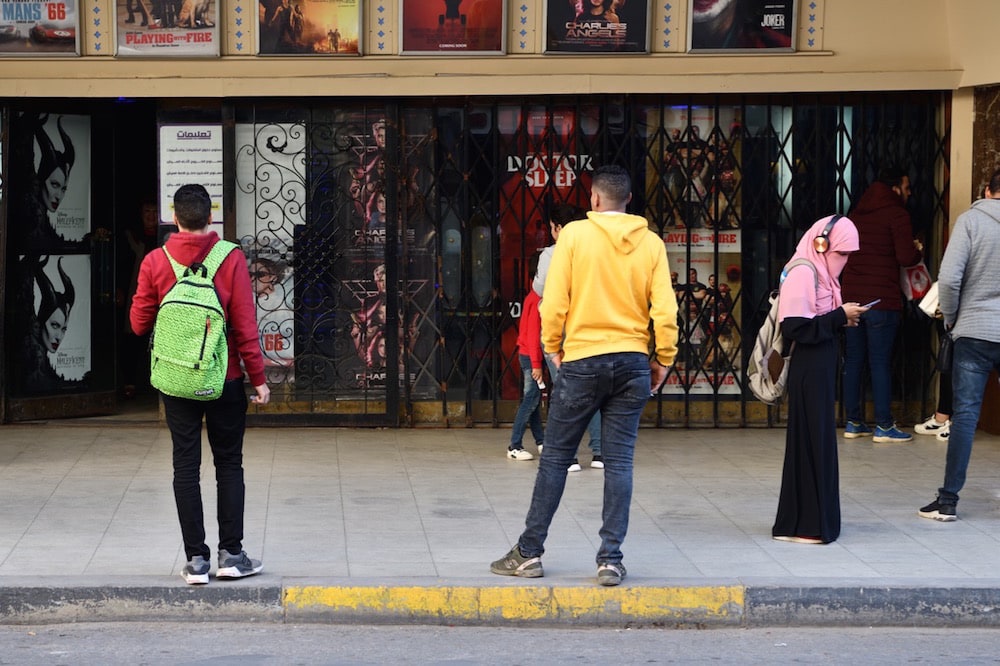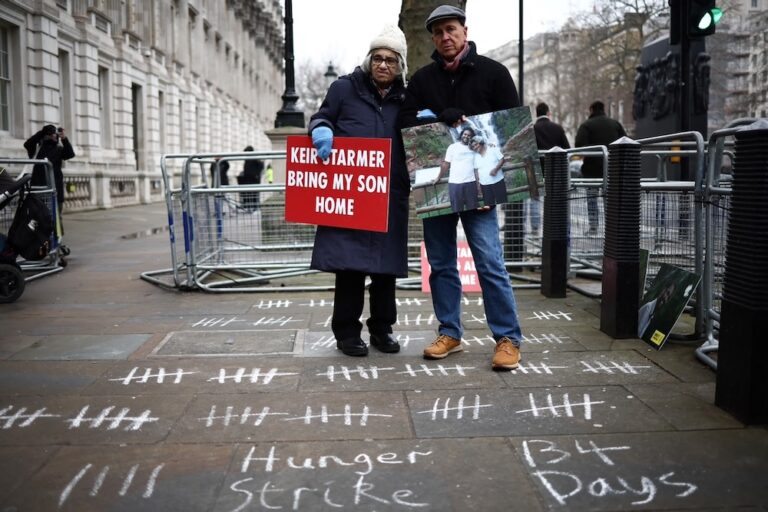How Egypt's Public Prosecution expanded its powers in recent years to monitor internet users, and violate their right to privacy and freedom of expression.
This statement was originally published on afteegypt.org on 8 August 2021.
Prepared and edited by: Research Unit at the Association for Freedom of Thought and Expression (AFTE)
Executive summary
In 2019, the Public Prosecutor issued a decision to establish the Communication, Guidance and Social Media Department (CGSMD), an affiliate of the Public Prosecution. Since then, the Monitoring and Analysis Unit (MAU) of the newly-created department has filed a number of lawsuits against users of social networking sites. This means that the Public Prosecution has been officially monitoring internet users under the pretext of protecting national security, national social security, and values of the Egyptian family.
The Public Prosecution needs to stop monitoring internet users out of respect for the privacy of citizens. The decision to establish the MAU contradicts a number of laws and legal principles, not to mention the lack of transparency about the way it conducts its work.
Introduction
Since the Public Prosecutor, Counsellor Hamada al-Sawy, assumed his post, he has been keen to strengthen the Public Prosecution’s official presence and interaction online. He issued a decision to establish the CGSMD, less than two months after his appointment[1]. The new department has started functioning through three units: first, the Media Communication Unit; second, the Electronic and Social Media Unit; and third, the MAU[2]. The Public Prosecution stressed that its presence on social media aims to safeguard “social national security”[3], asserting that the incidents included in its statements are only announced after being circulated among “the public and non-specialists”. Therefore, the Public Prosecution publishes statements “to protect investigations and refute rumours and inaccurate news”.
The Public Prosecution’s interest in being present on social media started in 2018 when former Public Prosecutor, Counsellor Nabil Sadek, assigned the Attorneys General and Chief Prosecutors, each within their jurisdiction, the task of following up on the lies and fake news published on social media to target “the country’s security and safety” and taking the necessary legal action against the owners of these online posts[4]. This follow-up has created a pattern of accusations levelled at owners of social media accounts over the content of their posts. Accordingly, internet users have to take into consideration that they may be legally held accountable if the Public Prosecution monitored their activity and considered the content, from its point of view, a threat to any of the national security, national social security, or the values of the Egyptian family.
In a related note, the current Public Prosecutor reiterated that the digital transformation is one of the most important issues that have recently topped the Public Prosecution’s agenda. He also pointed out that the Public Prosecution is working to strengthen the necessary technical infrastructure, facilities and logistics. This appeared, for example, in a statement by the Public Prosecution in which it announced that it would replace paper transactions with digital means to reduce “manifestations of corruption” and preserve public health given the spread of the Covid-19 virus[5].
After the establishment of the CGSMD, which aims to enhance the digitisation of the Public Prosecution’s work, and by following up its performance on the ground, it has become clear that the Public Prosecution does not only aim to carry out its duties in terms of initiating and investigating judicial cases[6], but it has assumed a new role establishing a pattern of mass surveillance of the internet as well.
Background: Public Prosecution monitors internet users
The Public Prosecution represents the people’s interests and acts on their behalf in establishing justice and enforcing the law. According to Article 189 of the Egyptian Constitution, the Public Prosecution is part of the judiciary and does not belong to the executive branch in any way[7]. Now, the Public Prosecution has the power to level charges with a view to file lawsuits, as well as assumes the authority of investigation at the same time. This represents an existing problem that violates the principle of impartiality that should be adopted by the investigation body[8].
On 28 September 2019, the Public Prosecution announced that it was in the process of opening extensive investigations into “incidents of incitement to demonstrations in public squares and streets”. In its statement issued at the time, the Public Prosecution indicated that it was browsing the social media accounts of the accused and that it assigned experts from the Ministry of Interior’s department for fighting crimes related to computers and information networks to list the pages and accounts in question to take legal action against them, as stipulated in the Anti-Cyber and Information Technology Crimes Law[9].
However, the Public Prosecution overlooked the fact that its explicit announcement of browsing citizens’ social media accounts violated the right to privacy, whose broad concept includes all of the metadata that, when collected and analysed, gives an overview of an individual’s behaviour, social relationships and preferences down to everything that constitutes their identity[10]. This has already become clear in the Public Prosecution’s new performance in dealing with social media users.
This announcement by the Public Prosecution has legalised to the mass surveillance of the internet as one of its functional roles. The Public Prosecution has proceeded with its new approach in a more organised manner after Mr Sawy had announced the creation of the CGSMD in November 2019[11], thus assuming a role resembling that of the Ministry of Interior’s department for fighting crimes related to computers and information networks.
The Public Prosecutor’s Decision No 2376 of 2019 that established the CGSMD consists of five articles[12] clarifying the goals and tasks of the new department. The CGSMD operates through three main units with the aim of achieving seven objectives, mainly including “working on social guidance to prevent the causes of crimes and achieve security and social peace for the interest of society”. It also assigns exclusive and specific tasks for each of the three units. Putting the articles of the decision against the Egyptian legislation on the one hand and reviewing the Public Prosecution’s performance in implementing the decision on the other, some problems emerge and make the legality of the new department’s measures questionable.
According to the decision, the MAU has become exclusively in charge of two tasks. The first is to monitor the Public Prosecution-related content published in the media and social networking sites. The second is to “monitor and analyse comments and opinions on the published news related to the Public Prosecution and express an opinion whether the news requires the Public Prosecution to release a statement, make an announcement or respond to the news with remarks by the Department”. The decision did not, however, specify how the monitoring tasks will be carried out or define the Department staff who will conduct such operations, and whether they are prosecutors or technical personnel[13]. Nor did the decision define the scope of posts relating to the Public Prosecution. Therefore, the Public Prosecution may monitor everything it considers relating to it or pertaining to the commission of crimes.
Thus, the Public Prosecution has become a body that monitors crimes and violations before it receives reports or complaints from individuals. In other words, the Public Prosecution’s powers have expanded to include tracking crimes and carrying out preliminary investigations, which are supposed to be conducted by the police that are part of the executive branch[14].
Therefore, the MAU’s work not only violates the internet users’ privacy and freedoms of thought and expression, but it is also inconsistent with the Egyptian Constitution, which provides for the separation of powers. The Public Prosecution is carrying out tasks that are supposed to be within the police powers within specific contexts and not collectively.
MAU between continuation or abolition
The incidents monitored by the Public Prosecution on social networking sites can be divided into two types. The first includes posts about incidents that have already occurred away from the internet, such as murders, torture or rapes, which are crimes punishable by penal laws or the Child Law. The second includes posts that are related to the nature and content directly published online by social media users. This means that online activity is the basis of any incident that the Public Prosecution deems as violating the law.



